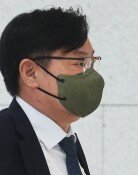Anti-Foreigner Sentiment Rising in Korea
Anti-Foreigner Sentiment Rising in Korea
Posted November. 17, 2008 03:15,
A 30-year-old Chinese office worker who has lived in Korea for four years says, Korea has no violent groups that kill foreigners like skinheads, but is not immune to xenophobia. Koreans in particular verbally abuse and insult foreigners.
Regardless of background, age and gender, most Koreans frequently use racial slurs against the Chinese. Koreans have no idea how offensive their words are.
With nearly a million foreigners residing in Korea, voices are rising to prevent xenophobia from spreading and build a sound multicultural society. Seol Dong-hoon, a sociology professor at Chonbuk National University, said, Koreans have deep-rooted hostility toward foreigners because Korea has a relatively short history of multiculturalism. Anti-foreign sentiment reinforced by the rising number of crimes committed by foreigners and the economic crisis can exacerbate xenophobia.
○ Rise in foreigner crimes fueling xenophobia
Many experts say the rise in crimes committed by foreigners is the major trigger for the recent outbreak of xenophobia, a phenomenon that gives rise to the perception that foreigners deserve discrimination because they are troublemakers.
The number of economic crimes like voice phishing and financial offenses committed by foreigners has soared with the growth in the foreign population. The number of such crimes skyrocketed from 1,660 in 2004 to 4,536 last year.
Kim Yoon-yeong, a researcher of the Security Policy Institute under the Korea National Police University, said, Economic crimes by foreigners target not just a few but most Koreans. Such crimes can easily provoke animosity against foreigners.
Basic measures to prevent and tackle crimes by foreigners are insufficient in Korea. An external affairs official of the Seoul Metropolitan Police Agency said, Until foreigners who have lived in Korea for a long time become naturalized citizens, we cannot get hold of basic data such as fingerprints to prevent and prosecute crimes by foreigners. That is why crimes by foreigners are much more difficult to solve.
○ Poor economy fanning anti-foreigner sentiment
The economic crisis is also causing discrimination against foreigners. As the number of jobs dwindles, more Koreans are growing disgruntled over lower-paid foreign workers who fill construction sites and factories.
The city government of Ansan, Gyeonggi Province, where many foreign workers live, is flooded with complaints from Korean residents, who claim too many foreigners are taking away their jobs and dragging down wages.
Choi Byeong-gyu, chief of the Migrant Workers Support Center of the Labor Ministry, said, Foreign workers are being blamed for dragging down income in the Shillim district of Seoul because their daily wage has remained around 50,000 won (35.73 U.S. dollars) for a decade.
○ Promotion of multiculturalism needed
The most important tool to fight xenophobia could be better protection of foreign workers rights. Song Tae-soo of the Korea Labor Institute said, The number of foreign residents in Korea will increase considering the nations international standing. We must aggressively take action in the initial stage when problems and conflict are detected.
For example, a proposal for an ordinance on foreigners human rights will be introduced to the Ansan City Council next month, including provisions protecting foreigners from discrimination and disadvantages based on skin color, race, ethnicity and language and in the use of public facilities.
Before its too late, every member of society must seriously think about what systems are needed to create a sound multicultural society, Kim of the Security Policy Institute said.
turtle@donga.com constant25@donga.com
Headline News
- Med professors announce intention to leave hospitals starting Thursday
- Bridge honoring Sgt. Moon Jae-sik unveiled in Pennsylvania
- Chief of Staff Chung tells presidential secretaries to stay away from politics
- US FTC bans noncompete agreements
- N. Korea launches cyberattacks on S. Korea's defense companies







